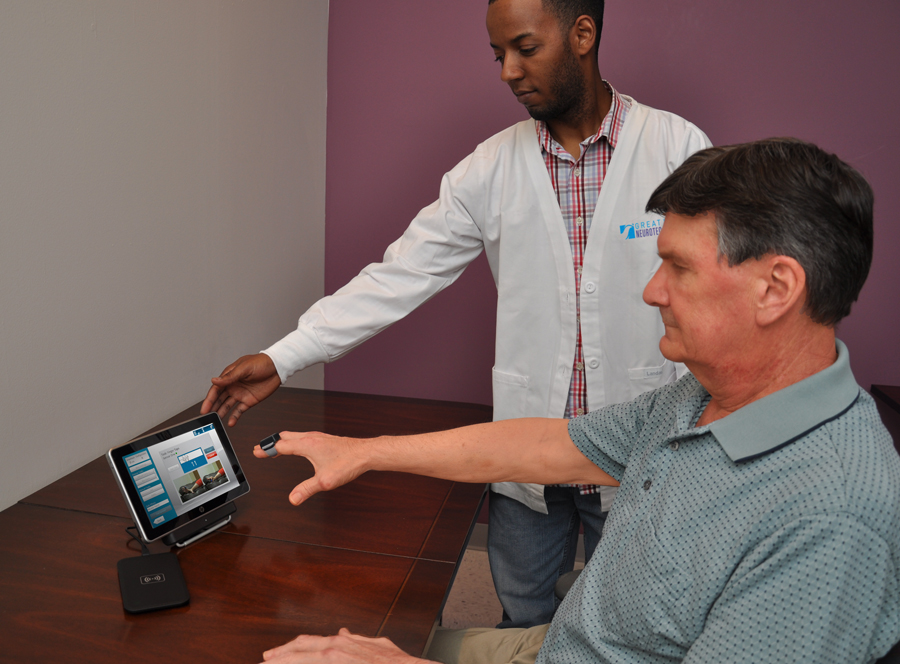
Great Lakes NeuroTechnologies (GLNT) has received $1.9 million from the National Institutes of Health (NIH) to improve the efficacy of deep brain stimulation (DBS) programming for Parkinson’s disease (PD) and minimize time required by a clinician to optimize settings. The technology development and commercialization will combine wearable motor symptom sensing and a DBS platform into a single integrated system. Intelligent algorithms for searching settings and selecting optimal parameters will be validated using real-time closed-loop feedback from sensors to adjust DBS. The validated closed-loop system for efficiently programming DBS can improve patient care and expand access to underserved populations.
Why Is Measuring Parkinson’s Disease So Challenging?
Parkinson’s disease is a movement disorder in which affected individuals may experience tremor, slowness of movements, stiff joints, and impaired gait. DBS therapy can provide effective motor symptom relief. However, challenges exist with respect to programming the system after the electrode and pulse generator have been implanted. Expert clinicians must manually adjust settings such as stimulation contact, amplitude, pulse width, and frequency to determine the combination that provides the most symptom relief at the lowest battery power. As DBS systems are providing more targeted control through an increased parameter set of amplitude, pulse width, frequency, and contacts, the number of potential combinations and required programming time grow exponentially.
GLNT has previously commercialized Kinesia, a system of wearable sensors and mobile apps for assessing PD and other movement disorders. The company will use this Phase II SBIR funding to target their core technology to programming DBS, building upon successful Phase I pilot studies.
“We demonstrated in two studies that intelligent algorithms using sensor feedback could successfully identify optimal stimulation parameters that significantly improved motor symptoms or maintained therapeutic benefits while reducing stimulation amplitude by an average of 50% to decrease battery usage”, stated Dustin Heldman, PhD, Biomedical Research Manager. “One previous limitation was separate systems were used for assessment and programming. We look forward to this next phase, which will directly integrate the systems to improve clinical workflow and speed programming time.” Once technology integration is complete, the system will be validated in a multi-center clinical trial in collaboration with Dr. Jerrold Vitek at the University of Minnesota.
The company has leveraged rapidly growing sales of Kinesia technology in the global clinical trials market to educate and train an engaged clinician and patient market. In a separate recently completed European study, the company demonstrated that 36% of advanced patients remotely monitored by wearable technology were referred for and received advanced therapy such as DBS or medication pumps compared to 0% in the standard care group. “Through multiple studies, we have demonstrated our technology can positively impact patient care. Our key market differentiator is not sensors for sensors sake, but targeted applications built around validated and published algorithms”, continued Dr. Giuffrida.
